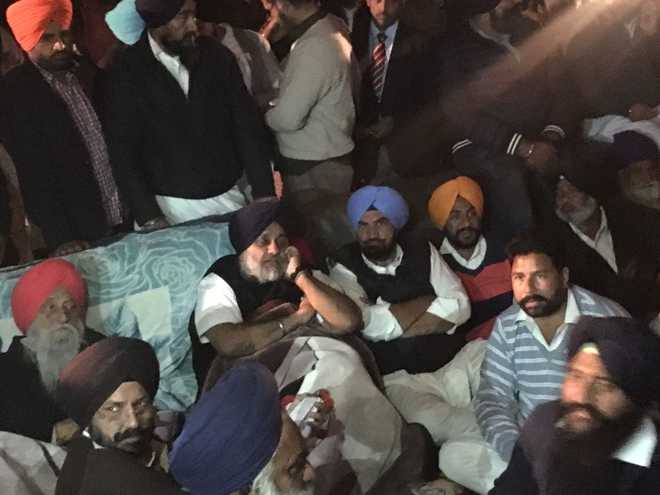
The govt booked hundreds of Akali leaders and workers, and the SAD leadership spent a night in the cold to block highways, when neither had been able to garner such enthusiasm for any public cause since the formation of the Congress government.
Kuljit Bains
The past week saw both the government and the Opposition party SAD displaying uncharacteristic energy in marshalling their respective tools of power. The government booked hundreds of Akali leaders and workers, and the SAD leadership spent a night in the cold to block highways, when neither had been able to garner such enthusiasm for any public cause since the formation of the Congress government in March.
One reason for this springing to life was perhaps the fact that at stake was political prestige for both the SAD and the Congress, even if in a mere civic election.
The ruckus, of course, was set off by outright misuse of the police by the Congress government to impede the process of filing nominations for Opposition candidates in the municipal elections. Some of the tactics were as crude as allowing Congress party workers to beat up rivals, with the police calmly watching if not abetting. Much of this happened during the SAD-BJP rule, too, but the prevalence of the omnipresent mobile camera now instantly puts the evidence in public domain. Police officers have shamelessly demonstrated how willing they continue to be to align with the rulers of the day.
Subsequently, the police took a legally valid action of registering cases against SAD leaders and workers for harassing the public by blocking roads. However, the alacrity stands in contrast with the inability of the government as well as police to take similar action in cases of other rampant violations, such as instances of brazen illegal sand mining reported in these columns. There are reports of encroached forest land being reclaimed by the department, but then taken back by encroachers by force under patronage from Congress leaders. Revision of the transport policy seems to be taking forever. The government is able to ignore all such violations with a remarkably straight face.
More curious, however, have been the antics of the SAD. Such has been its outrage at being given a taste of its own medicine that it found it justified to even harass the public for its own cause. Mention of violation of democratic rights — an otherwise legitimate charge — sounds a bit odd coming from a party that only this year relinquished power after 10 years of systematic reduction of the police force to the ruling alliance’s political wing.
After being reduced to 15 seats in the last Assembly election, the SAD leadership virtually disappeared from public life. Top leaders even found themselves unable to sit through the full duration of the mere three days of the last Assembly session to debate public issues. They have also been content to silently hand over sand mining operations to Congress men. The delay in the promised loan waivers for farmers could agitate the SAD only to the extent of bringing them to the well of the House, not on to the roads. Civic elections, apparently, were more important.
AAP has been unable to put up candidates in all cities and towns going to the polls, mostly because of its internal disarray or lack of sufficient cadre and party structure. An interesting debate, however, has been touched off by a few leaders within the party, who have proposed that civic elections should not be contested on party lines.
There is weight in this argument. Municipal posts, after all, are only meant to administer funds meant purely for development or maintenance of civic amenities. There are no policy, ideological or legislative matters involved that may require participation of political parties. In fact, partisan divides within civic bodies ensure funds are distributed not on a need basis but as per political alignments. If parties stayed out of these elections, local representatives could be elected based on the time and energy they devoted to area development.
With the unwavering tradition of civic polls going the way of the ruling party in the state, the result of the elections is a foregone conclusion. But, sadly, so is the mess in municipal bodies after the polls.



























